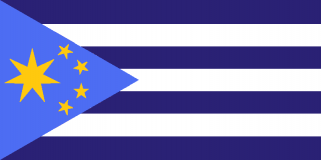A Roleplaying Region

The New Earth offers a competent selection of roleplayers dedicated to cooperation and story development, crafting a world narrative between various foreign powers and international organizations that is easy to take part in. The region features an in-character news service and regular region-hosted roleplays that generally continue canon narratives and are open to all members of the region. The New Earth is an expansive region of lore and history, with an array of countries that vary from socialist states to capitalist countries to autocratic empires, with a political climate that makes it easy to rationalize any realistic nation into a functioning existence in the regional canon. The New Earth is a dynamic region as well, consistently developing its world lore and having plenty of opportunities for you to join in and participate, shaping the world around you significantly. We invite you to make an application and stake your claim in The New Earth today!
Regional Map
RP Archive
Note: Because we focus on an alternate-Earth setting, we’re not accepting clones of existing nations. You may be inspired or derivative of a real-world country, but there must be differences. Furthermore, we are strictly human-only and please keep in mind that we are entirely grounded in a MT setting. If your nation does not meet these basic requirements, please don’t apply.
APPLICATION FOR ADMISSION
*Remove anything in parenthesis
*All fields mandatory
- Code: Select all
[spoiler=Application][box][align=center][size=150][b][color=darkblue]APPLICATION REQUEST[/color][/b][/size][/align]
[hr][/hr]
[align=center][size=125][b][color=darkblue]General Information[/color][/b][/size][/align]
[b]Full Nation Name:[/b]
[b]Short Nation Name:[/b]
[b]National Demonym:[/b]
[b]Capital City:[/b]
[b]Requested Map Location:[/b] (Provide either an image link or describe the location.)
[b]Short Description of National History:[/b] (Refrain from using too much international history and instead focus on happenings directly in your nation, since regional canon is different from real-world history)
[hr][/hr]
[align=center][size=125][b][color=darkblue]Government[/color][/b][/size][/align]
[b]Government Type:[/b] (E.g., Federal Parliamentary Constitutional Monarchy)
[b]Head of State:[/b] (If same, list as both)
[b]Head of Government:[/b]
[hr][/hr]
[align=center][size=125][b][color=darkblue]Economy[/color][/b][/size][/align]
[b]GDP:[/b] (Nominal only)
[b]GDP per capita:[/b] (Nominal only)
[b]Economic System:[/b] (Such as Free Market Economy, Socialism, etc.)
[b]Economic Stage:[/b] (Growth, depression, recession, stagnation, etc.)
[b]Name of Currency:[/b]
[b]Conversion rate into USD[/b] (1 USD = # Your Currency)
[hr][/hr]
[align=center][size=125][b][color=darkblue]Demographics and Culture[/color][/b][/size][/align]
[b]Population:[/b]
[b]Official Language:[/b]
[b]List Regional Languages:[/b]
[b]Is there a National/State religion?:[/b]
[b]Short Description of Culture:[/b]
[hr][/hr]
[align=center][size=125][b][color=darkblue]Military[/color][/b][/size][/align]
[b]Active Personnel:[/b]
[b]Reserve Personnel:[/b]
[b]Total:[/b]
[/box][/spoiler]






